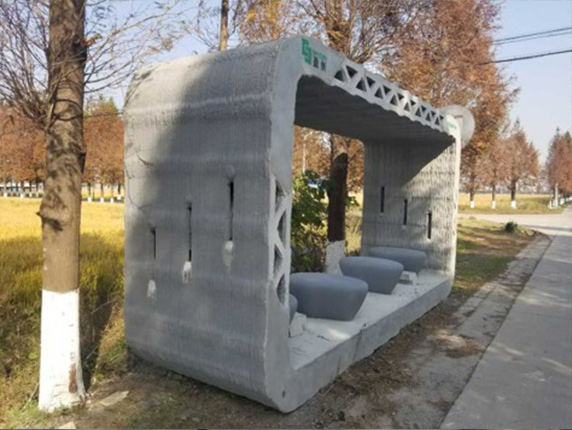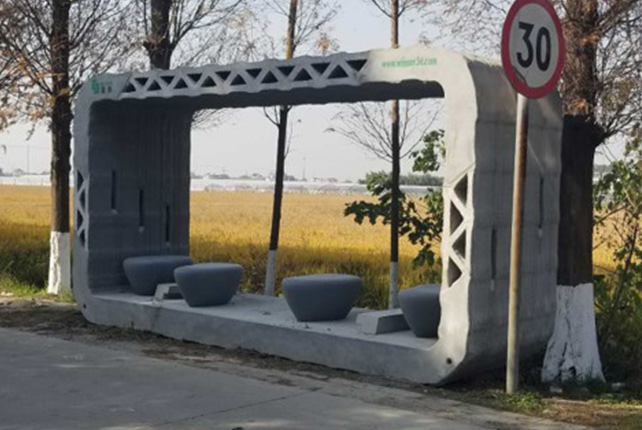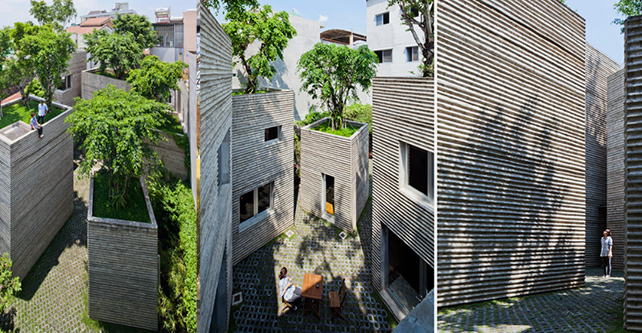A 3D printed bus shelter, the first of its kind in the world, has been manufactured and put into use in Fengjing, China. The bus shelter was produced entirely from recycled building waste by Yingchuang Building Technique, also known as WinSun, a Shanghai-based company specializing in 3D printed structures.
The bus shelter is itself a pilot for further 3D printed concrete structures that will grace “Zhangjiang Yangtze River Delta science & technology city,” an upcoming planned settlement straddling the border of the Shanghai and Zhejiang regions.

A 3D printed bus shelter in an ancient town
The 3D printed concrete bus shelter has a closed-loop design and features four benches, with a desk to be added later. The material for the bus shelter came from recycled waste material in and around Fengjing, giving it a distinct shade of grey, and a surface finishes with traces of concrete layer extrusion.
WinSun 3D printed the bus shelter at its factory in the Jinshan district of Shanghai, before transporting it to the rural roadside in Fengjing. According to WinSun, such a structure could be 3D printed overnight.

3D printing a city, WinSun in Zhangjiang
WinSun has previously been in the news for applying a technology invented by Contour Crafting’s Behrokh Khoshnevis, using it to 3D print inhabitable structures in a short period of time and completing 3D printed concrete buildings across the world in multi-million dollar contracts.
The company’s latest project involves 3D printing structures for Fengjing, as it becomes part of the Zhangjiang Yangtze River Delta science & technology city, a new settlement located between the regional centres of Shanghai and Hangzhou. The new city will home to “intelligent manufacturing” industries (like 3D printing) and also promises to preserve the cultural heritage of its existing constituent towns and villages.
In an interview with China Hi-tech District in December, WinSun founder Ma Yihe explained that besides the bus shelter, the company has submitted plans for a 3D printed village office, multi-functional space, coffee shop, hotel, public toilet, bank self-service kiosk, co-habitational house and police post. Some of these will initially be constructed in a 90 square meter plot of land set aside for the project, according to local party secretary Zhang Bing.
“We are committed to achieving perfect integration between industry, culture and art,” said Ma. “Winsun aims to benefit people with technology innovation and it is committed to achieving this mission.”

Nominations for the second annual 3D Printing Industry Awards are now open. Make your selections now.
For more information on 3D printing subscribe to our free 3D Printing Industry newsletter, follow us on Twitter, and like us on Facebook.
Featured image shows students inspecting the new bus shelter. Photo via WinSun.

